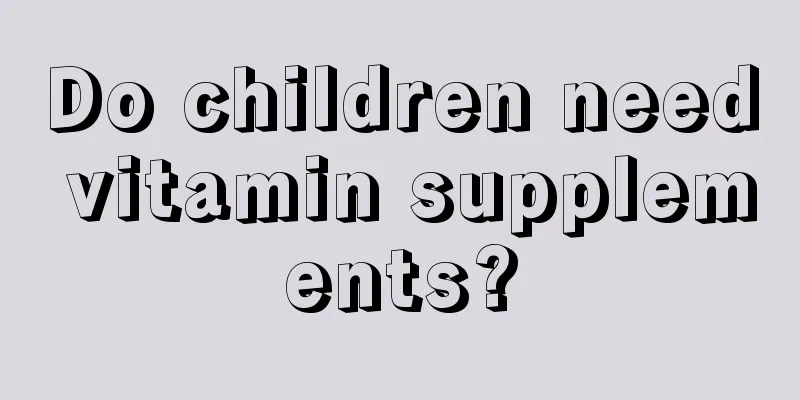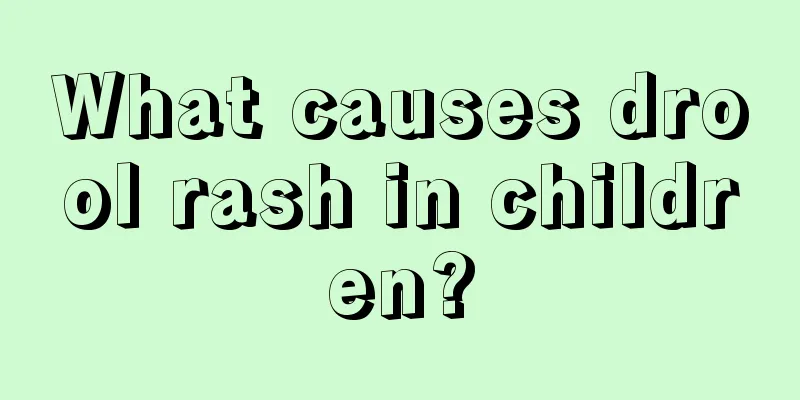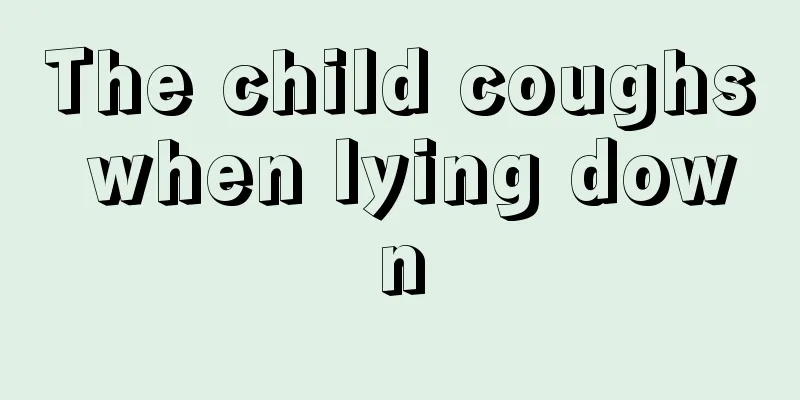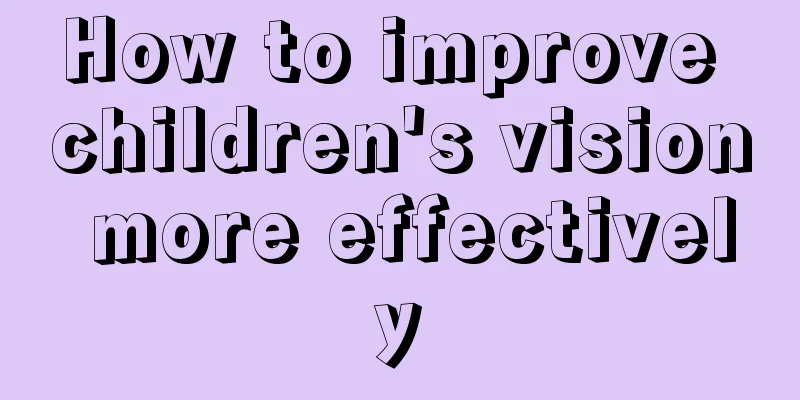Do children need vitamin supplements?

|
There are many categories of vitamins, which are mainly a general term for a series of organic compounds. The various vitamins have different functions. For example, vitamin E has the functions of delaying aging, eliminating free radicals, etc. Do children also need vitamin supplements? Doctors tell us that children are in the developmental stage and their bodies need a lot of stimulating substances, vitamins are no exception. Next, let’s take a look at what vitamins children need to supplement. Vitamins are essential components for the body's metabolism and regulation of normal cell physiological functions, so they are indispensable for maintaining the growth and development of children. If the body lacks any one of these vitamins, dysfunction of tissues and organs and even disease may occur. 1. For example, vitamin A can maintain normal vision, skin metabolism and regulate immunity. People who are deficient in vitamin A have visual problems (night blindness) and a significantly increased incidence of respiratory infections and diarrhea. Therefore, children need to supplement vitamin A. Foods such as carrots, cod liver oil, pork liver, and spinach are all rich in vitamin A. Foods rich in vitamin A mainly include animal foods such as animal liver, fish, seafood, cream and eggs. In addition, salted hairtail, crucian carp, silver carp, eel, squid, clams, cream, human milk, milk, etc. also contain 140 to 846 international units of vitamin A (per 100 grams). 2. B vitamins are involved in maintaining the body's metabolism and hematopoietic function. If you lack B vitamins, you may experience poor appetite, dermatitis, stomatitis, fatigue, anemia, neuritis, heart disease, etc. Therefore, children also need to supplement vitamin B. Foods containing vitamin B include: citrus fruits, potatoes, sauerkraut, asparagus, almonds, eggs, chicken, peanuts, milk, beer, animal liver, egg yolk, lean meat, fish, beans and cabbage. Vitamin B group: There are many members of the vitamin B group, including folic acid, niacin, vitamin B6, vitamin B12, etc. They not only participate in metabolism, provide energy, and protect nerve tissue cells, but also help calm nerves and relieve anxiety and tension. . 3. Lack of vitamin C can easily lead to bleeding and recurrent respiratory tract infections. Children also need vitamin C supplements. Foods containing vitamin C such as tomatoes, apples, oranges, carrots, tangerines, grapefruits, apricots, hawthorns, cherries, kiwis, strawberries, bayberries, peppers, celery, pumpkins, onions, lettuce, toon, dates, and grapes. 4. Vitamin D mainly helps the body absorb calcium and regulate immunity. Lack of vitamin D directly affects calcium absorption, causing rickets and susceptibility to infection. Foods containing vitamin D include: marine fish, animal liver, egg yolk and lean meat. Vitamin D is also found in foods such as skim milk, cod liver oil, cheese, nuts and seafood, as well as fortified foods with added vitamin D. Plant foods contain almost no vitamin D, and vitamin D mainly comes from animal foods. 5. Vitamin E helps the body metabolize, eliminates free radicals (substances harmful to the body) produced during metabolism and promotes the production of red blood cells. When it is deficient, anemia, edema, neuritis and rash may occur. Vitamin E is also one of the small amounts of elements that children need to supplement. In our daily diet, wheat germ, vegetable oil, beans, spinach, eggs, cabbage, flour, whole wheat, and unrefined cereal products are rich in vitamin E. Through the above content, we have a general understanding of why children need to supplement vitamins and foods containing various vitamins. Here we would like to remind parents that vitamins are generally found in food, so there is no need to deliberately buy preparations or medicines for children. Natural green ones are the best and better for the baby's body! |
<<: When is the best time for children to brush their teeth?
>>: How to treat encephalitis in children
Recommend
What's the matter with the hard lump on the baby's arm after the injection?
The health of the baby is a very important matter...
Can children receive immunoglobulin?
If the body has too little immunoglobulin, it is ...
Is moderate anemia in babies serious?
Unconsciously, children become unwilling to eat. ...
What are the symptoms of calcium deficiency in infants and young children and how to supplement it?
Many parents are concerned about the physical dev...
What to do if your child has tonsils that are thick
We all know that tonsils are an important part of...
How to treat baby's painful urination
Many babies feel pain when they urinate, which af...
How to solve hypospadias in infants
The healthy development of the baby is of great c...
What's wrong with a 7-year-old child's leg pain?
It is well known that the physical fitness of the...
Pus in the child's ear
Children often touch things when adults are not p...
Phimosis in 6-year-old children
Boys are often prone to common male diseases when...
What is the order of children's deciduous teeth replacement?
Many parents usually pay more attention to their ...
Rash on child's face
It is the hot summer now. The most likely reason ...
What is the reason for the child's
Children are weak, their immune systems are not a...
What causes cross-eyes in children?
Some babies will have crossed eyes. Some parents ...
Causes of congenital choledochal cyst in children
People who suffer from congenital common bile duc...









